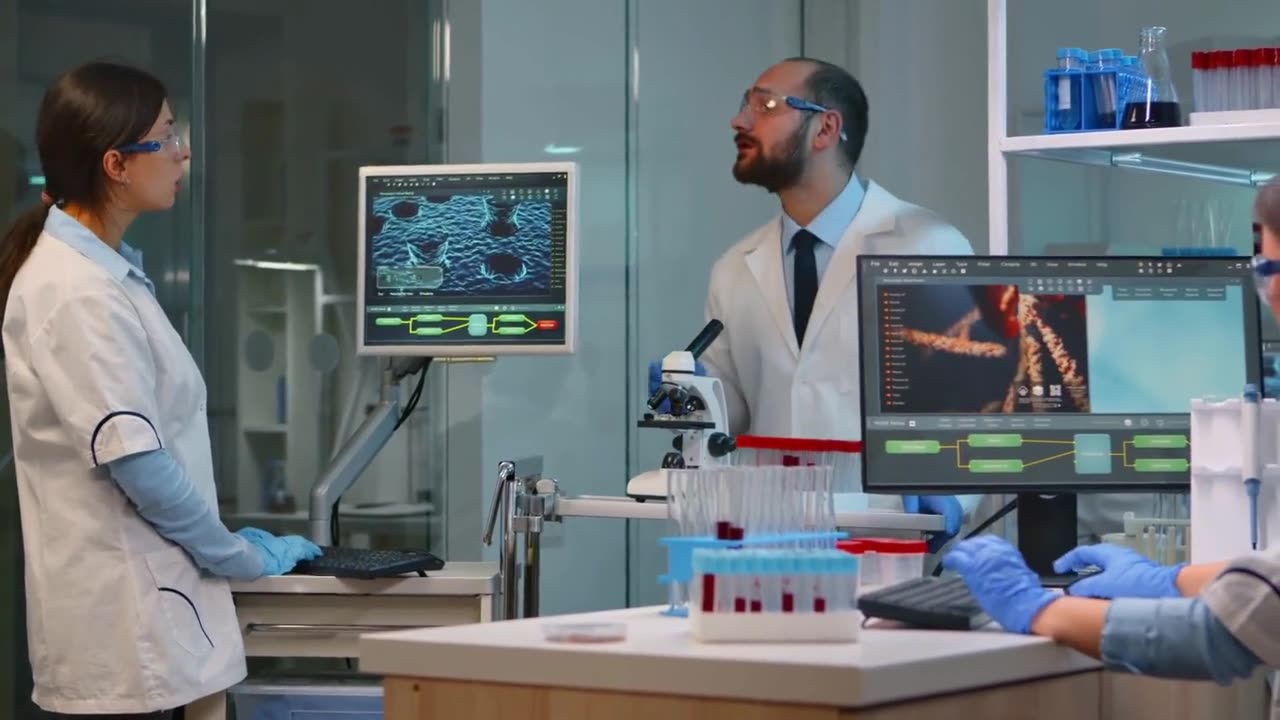Premium Only Content

100 Million Times More Difficult: Revolutionary Dual Action Antibiotic Makes Bacterial
A groundbreaking study from the University of Illinois Chicago unveils macrolones, a new type of antibiotic that targets bacteria in two ways, drastically reducing the potential for resistance and marking a significant step forward in infectious disease treatment.
A newly discovered antibiotic, which targets two different cellular mechanisms, could make it 100 million times harder for bacteria to develop resistance, according to recent research from the University of Illinois Chicago.
For a new paper in Nature Chemical Biology, researchers probed how a class of synthetic drugs called macrolones disrupt bacterial cell function to fight infectious diseases. Their experiments demonstrate that macrolones can work two different ways – either by interfering with protein production or corrupting DNA structure.
-
 2:39:02
2:39:02
The Pascal Show
17 hours ago $1.20 earned'HE'S THE DEVIL!' Former Mother In Law Breaks Silence On Jake Haro & Emmanuel Haro Case
12.4K1 -
 4:47:50
4:47:50
The Why Files
2 days agoCOMPILATION: UFOs and Aliens Vol.2 | They are NOT our friends
55.3K43 -
 5:30:10
5:30:10
SpartakusLIVE
12 hours ago#1 Verdansk Sniper gets HACCUSATIONS because of INSANE Headshots
58K4 -
 46:18
46:18
SB Mowing
2 days agoShe was LOSING HOPE but this SURPRISE CHANGED EVERYTHING
46.1K44 -
 10:00:10
10:00:10
ItsLancOfficial
12 hours agoWE LIVE 🔴WE LIVE 🔴 SUNDAY SUNDAYS!!!!!!! TARKOV
38.5K1 -
 4:09:32
4:09:32
EricJohnPizzaArtist
6 days agoAwesome Sauce PIZZA ART LIVE Ep. #59: Are You Ready for some FOOTBALL with GameOn!
46.7K7 -
 1:21:43
1:21:43
Jake Shields' Fight Back Podcast
17 hours agoJake Shields and Paul Miller!
78.6K137 -
 1:20:41
1:20:41
TRAGIKxGHOST
9 hours agoTrying to get SCARED tonight! | Are You SCARED!? | Screams Beyond Midnight | Grab a Snack
29.4K5 -
 5:21:24
5:21:24
StuffCentral
10 hours agoI'm baaack (no you can't play with me.. unless you a healer)
28.4K6 -
 2:25:11
2:25:11
TheSaltyCracker
12 hours agoTrump Is Not Dead ReEEeStream 8-31-25
109K169